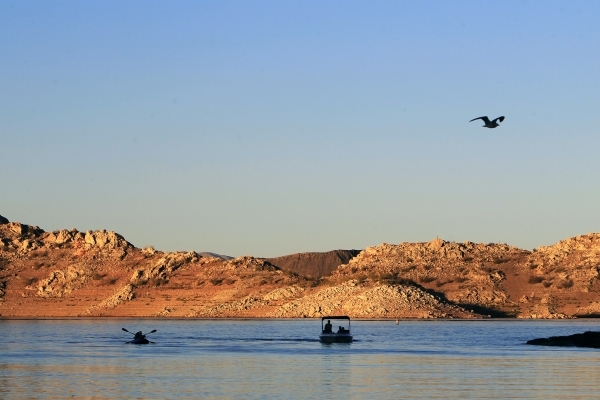Only agreement on public lands: keep talking

New York Times columnist Timothy Egan didn’t grow up rich. But he had one hell of a summer home.
Egan’s vacations were spent on the public lands of the Pacific Northwest, a place where his family camped, hiked and enjoyed the outdoors, his inheritance by virtue of being a citizen of the United States.
This, his mother told him and his siblings, is your summer home.
Egan relayed that story last week during a Black Mountain Institute panel on public lands titled, “This Land Is Your Land … Or Is It?” He extolled the value of public lands as the birthright of every American.
“National parks are America’s best idea,” he said.
True, said fellow panelist Terry Anderson of the Property and Environment Research Center. But those parks and other public lands are not well managed by the federal government. While outright privatization isn’t the answer, Anderson said, solutions such as “charter forests” in which environmental groups, Indian tribes or others sponsor and manage public lands might be a more effective option.
Egan and Anderson were speaking primarily of national parks, but they’d recognize the struggle over the use of other vast swaths of public lands, including those in Nevada, that played out in North Las Vegas on Monday. There, Lt. Gov. Mark Hutchinson and the Nevada Association of Counties convened a meeting of local elected officials, experts and federal land managers to discuss how the 86 percent of Nevada owned or controlled by the federal government is managed.
All of the classic complaints were given voice, by one person or another: The federal government responds too slowly to applications for the use of federal lands. The process of deciding how those lands are to be used takes too much time and doesn’t always produce a common-sense result. The feds radically shortchange local governments on payments in lieu of taxes, money that doesn’t come anywhere near what private property owners would owe. Local and state leaders can only plan for the use of a fraction of their lands. And federal lands are treated uniformly when perhaps they shouldn’t be — think national conservation areas saved from development versus surplus parcels near urban areas that are ripe for sale and building.
Meanwhile, activists and local officials, including Clark County Commissioner Chris Giunchigliani, state Sen. Kelvin Atkinson, D-Las Vegas, and North Las Vegas Councilwoman Anita Wood, held an event of their own Monday to air the most common objections to wholesale transfer of public lands. Among them: the state can ill-afford to take on management of federal property, including the 7.2 million acres Nevada has formally asked Congress to transfer in a resolution passed by the 2015 Legislature. The costs of range management, firefighting and other expenses would unduly tax state and local coffers, they argued, although at least one person at Hutchison’s panel said revenues would far outstrip costs.
Perhaps surprisingly, however, there was some common ground: Both environmentalists and pro-development officials said there should be a systematic process for identifying land that might be suitable for sale or transfer from federal to state, or private, hands. They might have disagreed about the conditions or timing of such a move, but they agreed, at least, that there should be a conversation about it.
And if nothing else, Monday’s public lands meeting might spark more meetings, between local officials, state leaders and federal officials who manage public lands. Hutchison said a monthly or even quarterly breakfast might serve to bridge barriers and work out problems, without the need to resort to litigation or, worse, the ugly threats of physical violence that have occasionally bubbled up on the range.
Because that’s just no way to treat our summer home.
— Steve Sebelius is a Review-Journal political columnist. Follow him on Twitter (@SteveSebelius) or reach him at 702-387-5276 or SSebelius@reviewjournal.com.